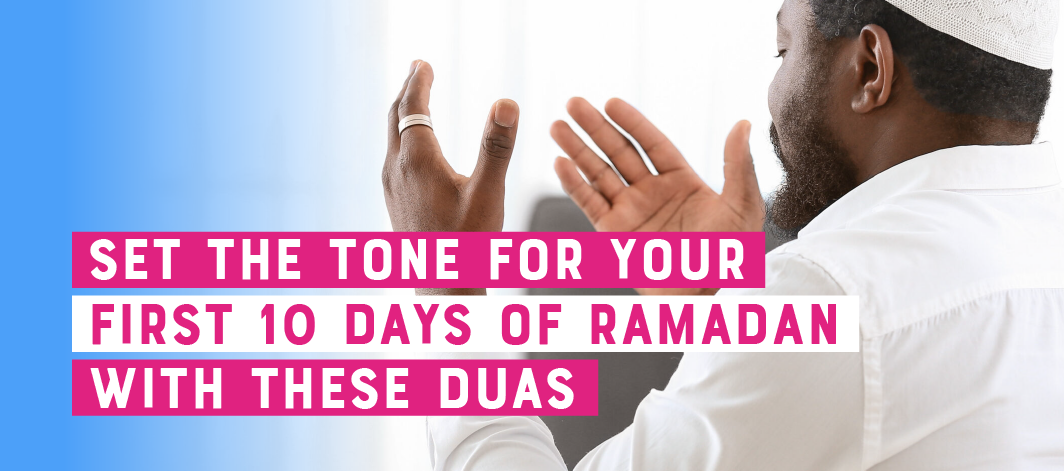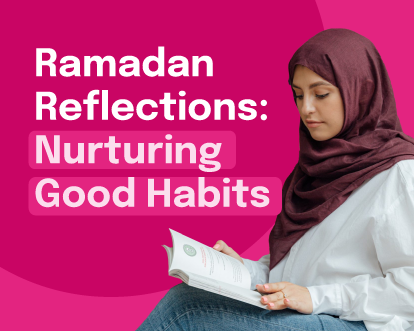The Holy Month of Ramadan
The ninth month of the Islamic calendar is the holy month of Ramadan, which begins and ends with the crescent moon sighting. It is a time of reflection and devotion to Allah (SWT).
During this sacred month we must display humility and show compassion for our fellow muslims, and all of those in our lives. We must remember Allah abundantly and always act in accordance with his will, especially in Ramadan.
Ramadan is divided into three stages, known as ashras, with each ashra representing a different aspect of the month. The first ashra of Ramadan is particularly significant, as it focuses on the mercy of Allah.
The First Ashra of Ramadan
The first ten days of Ramadan are known as the first ashra. This period is a time for all the Muslims in the ummah to reflect on their relationship with Allah, seek his forgiveness, and ask for his mercy.
The first ashra reflects mercy, and is also known as the "Ashra of Mercy" because it is during this time that Allah's mercy is believed to be at its peak.
During the first ashra, Muslims focus on their relationship with Allah and strive to improve themselves spiritually. They recite the Quran, engage in prayer and perform acts of charity. We should also spend time in self-reflection, seeking Allah's forgiveness for our sins, and seeking his guidance in our lives.
Themes of the Second and Third Ashras
Ramadan is comprised of three ashras, these are different phases of the month, which have their own unique themes.
The second ashra is very similar to the first, as it reflects forgiveness, which is closely tied to the concept of mercy. It is in this time that we must seek Allah's forgiveness for our sins.
Ramadan ends with the third ashra which builds upon the previous themes, and takes them one step further. It concentrates on gaining safety from hell, or Jahanum, as it is called in arabic. The last ashra shows us that we must seek mercy from Allah (SWT) and forgiveness for our sins so that we can avoid the punishment of Jahanum.
The Importance of Forgiveness and Mercy in Islam
Forgiveness and mercy are fundamental principles in Islam. As Muslims, we believe that Allah is the most merciful and forgiving, and he rewards those who seek his forgiveness. The Quran states:
"And he is the Forgiving, the Merciful" (Quran 2:37).
Since Allah is the source of all divine qualities, he wants us to emulate these in our daily lives and treat fellow muslims with compassion.
Allah often refers to himself as Ar-Rahman and Ar-Rahim. The arabic word Ar-Rahman translates in english to "the beneficent", which means generous or to do good. Ar-Rahim means "the merciful".
With these being among the foremost names of Allah (SWT), we can see that he wants to convey his divine mercy to us.
Our lord forgives many muslims for their past transgressions. We must keep this in mind and realise that we are never too far gone from the straight path of Islam to return to it, and grow closer to our creator.
This is of extreme importance as Allah loves us regardless of our past sins, and he is always there to accept our repentance, no matter the severity of those sins.
Muslims are encouraged to seek forgiveness from Allah throughout the year, but the first ashra of Ramadan is a particularly important time to do so. It is believed that during this period, Allah's mercy is abundant, and he is more likely to forgive our sins if we sincerely repent and seek his forgiveness.
Acts of Charity During the First Ashra
One of the key ways Muslims seek Allah's mercy during the first ashra is through acts of charity.
Giving to those in need is a powerful way to show almighty Allah that we are grateful for his blessings and that we care for others. Muslims are encouraged to donate to charity during the first ashra and throughout Ramadan.
Giving charity is one of many good deeds that we should practice throughout the entire month of Ramadan.
Fasting During the First Ashra
Fasting is an essential part of Ramadan, and it is mandatory for every adult Muslim who is able to do so. Keeping a fast involves abstaining from food, drink, and other physical needs from dawn until sunset.
Fasting during Ramadan is a way to show our devotion to Allah and to purify our souls. It is also a way to empathise with those who are less fortunate, and to appreciate the blessings that we have been given.
It is vital that we keep our fast with the right intention in mind. We must fast for the sake of Allah, and in the hopes that we can grow closer to him by abstaining from worldly pleasures and committing sins.
Seeking Mercy from Almighty Allah Through Dua in the First Ashra
One of the most important practices during Ramadan is making dua, which is a supplication or prayer to Allah.
There are many important duas for Ramadan, among those is the dua for the first ashra. Each ashra of Ramadan has its own special dua that Muslims recite to seek blessings and guidance from Allah.
The first 10 days of Ramadan are the "Ashra of Mercy". It is a time when Muslims seek Allah's mercy and forgiveness. In the first ashra of Ramadan you should recite the following dua:
"رَبِّ اغْفِرْ وَارْحَمْ وَأَنْتَ خَيْرُ الرَّاحِمِينَ"
"Rabbi ighfir warham wa anta khayrur raahimeen"
This dua is recited to seek Allah's mercy and to ask for his help and guidance. The meaning of this dua is:
"My Lord, forgive me and have mercy, and you are the best, most merciful"
The Significance of the Dua for the First Ashra
The dua for the first ashra is important because it acknowledges Allah as the source of all help and guidance. By reciting this dua, Muslims are reminded that Allah is the one who sustains them and provides for them. It is also a way of seeking Allah's mercy and forgiveness during the first ten days of Ramadan, when his mercy is believed to be at its peak.
Muslims can recite the dua for the first ashra at any time during the first 10 days of Ramadan. It is recommended to recite this dua after every prayer, but it can also be done at any other time of the day.
This dua is an important part of the first ten days of Ramadan, which is a time of self-reflection, repentance, and seeking Allah's forgiveness.
Muslims should make a habit of reciting this dua during the first ashra of Ramadan and throughout the month to seek Allah's blessings and guidance.
The first ashra of Ramadan is a time of reflection, self-improvement, and seeking Allah's mercy and forgiveness. Muslims should focus on their relationship with Allah and strive to improve themselves spiritually.
Acts of charity, prayer, and recitation of the Quran are all important ways to seek Allah's mercy during this period. By seeking forgiveness and showing mercy to others, Muslims can make the most of this sacred time and grow closer to Allah (SWT).








